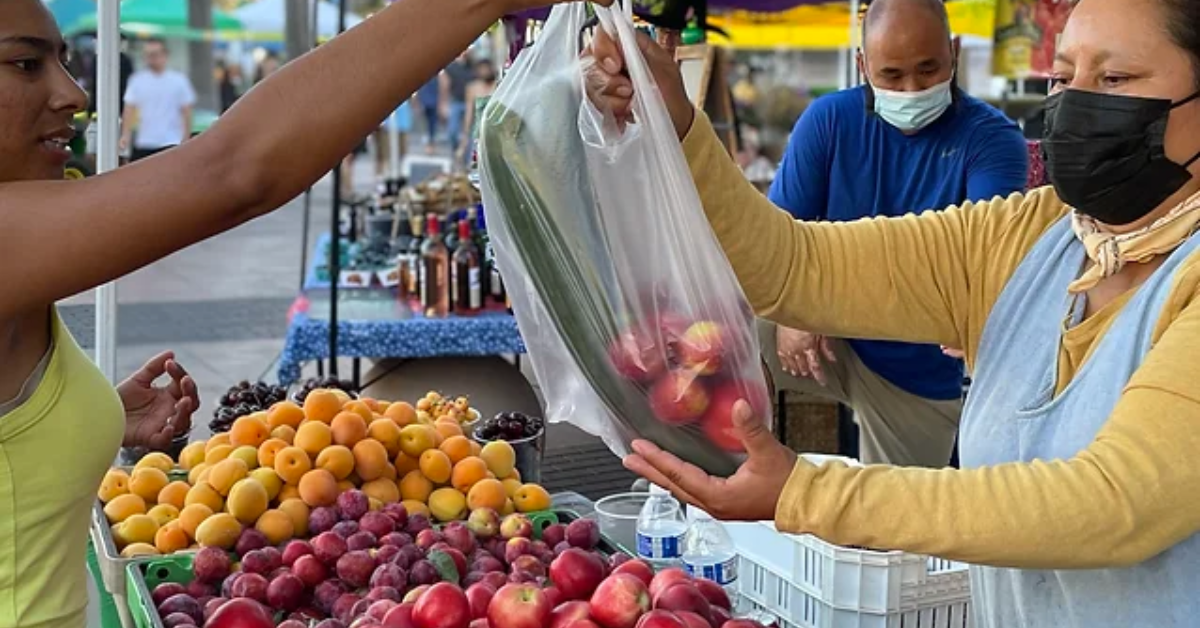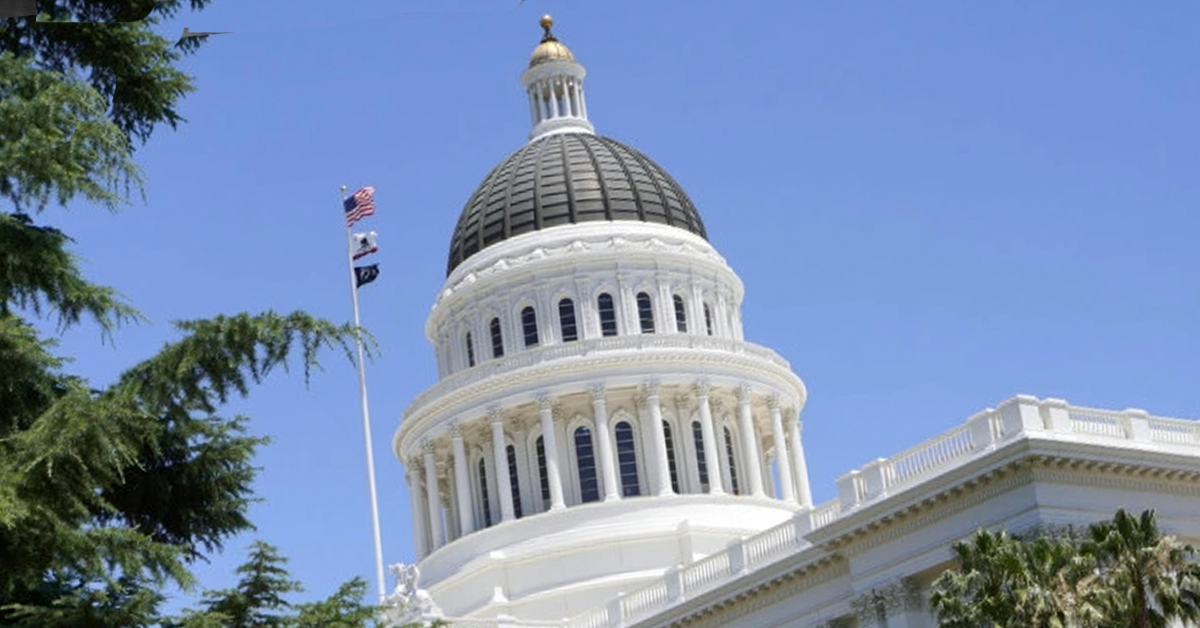The Clovis City Council election is scheduled for March 2, with current councilmembers Lynne Ashbeck and Vong Mouanoutoua up for reelection. Three challengers – Diane Pearce, Herman Nagra and Noha Elbaz – are also vying for the seats.
The top two vote getters out of the five will be elected to the Clovis City Council. The Sun’s Daniel Gligich talked with Herman Nagra to discuss the race.
Daniel Gligich: Why are you running for Clovis City Council?
Herman Nagra: I’m running for Clovis City Council because right now we have issues that are not being addressed. There’s nobody who’s an advocate for our small business community. As a business owner right now, I am an advocate for our small business community to be there for their issues. We do have council members who are with big builders that receive large sums of money from big builders, and it’s an unspoken truth in politics that favors aren’t given, that those builders aren’t putting that investment into these people to not expect something in return in the future or in the past that they have received. So that’s why I’m running. I have limited my budget to $2,000, not $80,000 or $100,000 like some of my opponents. I limit it to $2,000 because I’m going to be based on the issues, not off of who can outspend or who can use their own political sway to change things that don’t benefit the residents, that only benefit a very small percentage of people who have money.
DG: What professional background and experience would you bring to the Council?
HN: I am a graduate of UCSC, legal studies, and I have a business in southeast Fresno. It’s an AM/PM, a 24-hour convenience store, and I have a revenue of $6 million. In the beginning when I took over, 2015, the business was doing average, but by 2018, after three years of running it, I got the same business to be top 15 percent of the entire AM/PM franchise in the US. I was given an incentive for that, an award and a trip to Hawaii. So I’m able to do great things by running a business, negotiating contracts. Right now in our city we have bids from different contractors, and nobody negotiates those contracts. There’s room to negotiate contracts even further to get our city the best deal, and nobody’s getting our city the best deal.
DG: Name the three biggest changes you’d seek to make on the City Council.
HN: One, we would have the DARE program back. It was axed in 2008 with budget cuts then. We had the best economy before COVID, we would bring that back. Because with DARE, the lives that are saved and the families that are saved – because you have to remember the toll that drug abuse takes on an entire family and an entire society – we would save money in that part and instead have a program that now covers cyber bullying, suicide prevention. That program will help save lives. We’ll bring that back. DARE will be back. The other thing that we will have is our small business community won’t be unsure of ‘Does our City Council support us?’ There will be unquestionable support for small businesses, that we have a council that is there for our issues, that addresses our issues in a fast, concise manner. Running a small business in southeast Fresno, the city is overstretched to fulfill our needs. But in Clovis I’ve received complaints from small businesses is that our city isn’t giving us concise direction. COVID is one of the examples that the city’s not giving concise directions to our small businesses — with outdoor dining, with indoor dining. With me being in city office it would be clear of what the expectations from our city are and how we are there to work for our community, for our small businesses. We’re working for them. We should not be working against our small businesses.
DG: In your view, what are the top issues that the Clovis City Council must address in the upcoming years?
HN: I feel as though in the upcoming years we will have an issue on resources – resources of police department, fire department, schooling, water. Our city has expanded at a really fast pace because of influence by builders to our city council with those donations that I spoke of. With that influence they have been able to have unchecked urban sprawl. As a city we have that charm, that Clovis charm right now, that small town charm – that’s at threat once our city is 200,000, 300,000 even with all of this expansion. We are jeopardizing that small town charm, and to retain that charm we need to make sure that there’s somebody on the city council that isn’t connected to big builders, that is an advocate for small businesses owners and overall an advocate for the residents. The residents come first.
DG: The City of Clovis is in the midst of growth, with additional housing units being constructed in the northwest and eastern edges of its city limits. Do you support continuing low barriers to construct affordable, market-rate housing for the Valley’s workforce?
HN: I do advocate that if you work in Clovis you should be able to afford to live in Clovis. As a small business owner I want my employees to be able to live by my business. Do I think that we’ve had too much growth? That you can see yourself. Our parks, we have marijuana stench. We have problems of drug use in parks that goes unchecked. We have issues of uneven sidewalks, sidewalks being drenched with water by sprinklers every day not even pointing towards the grass. We’re having those issues now. As we make our city bigger we’ll have those issues even more. We need to address the issues that we have now and then focus on getting the resources to be able to expand if that is the healthy thing to do, without the influence of builders. That’s a key part in this. The builders should not have the influence in this matter. Operation Rezone, I’ll go to that. I suggest all residents of Clovis, and even residents of Fresno, should read about what happened during Operation Rezone. I’m not explicitly saying that that’s what’s happening now, but you will see parallels. You see donation lists of who’s donating to who. The people can form their own conclusions from that. But the thing is this information, an everyday resident doesn’t look at that. I didn’t look at that until I started running a business, until I owned a business. I started looking at it when I went to those fundraising dinners, when I was asked for donations. That’s when I thought, ‘OK, politics is money based.’ You can know about your competition being built down the street from you early on if you give a little donation to the councilmember of your area. You give $1,000, you’ll know what’s going on if you’re going to get a competitor soon. That’s how the system is, and I’ve revealed that. I’ve gotten a little bit of trouble for revealing that.
DG: Additionally, would you support the City of Clovis seeking annexation of some or all of the Southeast Growth Area (SEGA) or other unincorporated areas in eastern Fresno County to support additional market-rate workforce housing?
HN: I support the annexation of our county land if our resources allow that. Not based off of builders, not political sway from any builders or any donations, but simply based off of the resources. Right now in that part of the town in southeast Clovis, that area doesn’t have the response time from the fire department at the level it should be. It’s in the red zone. Until a fire station gets built there, it will be under served by our fire department. Let’s get the fire department there first so that we’re not in the red zone before we build the houses. Let’s have enough police resources in our city before we build the houses. And additionally we need to make sure that we have, as an overall city, we have the money for fire, for police, for our community, for prevention of the issues that are occurring before we build anything. My main idea is that we must make sure the resources are there before we expand our city and make sure that we have a budget within our police department. Our current city council cut the police budget by $1 million, the fire budget by $800,000. With a smaller budget it’s not going to support a larger urban sprawl. We need to get those departments funded. Our fire department, $800,000 in a cut, but their response time to southeast Clovis, where that expansion is going on, is under what their acceptable amount is. It’s in the red zone. If you look up their response times in the entire city, that area is the area that is under served. So before we build, we need to make sure that the fire department is able to get in those areas at the right time, but they must also have the budget to be able to do that – $800,000 in a cut is going to hurt the progress of building there. So that’s what we need to get a hold of. Right now our budget is spent in a really bad fashion – 2020, 75% of the year was under a lockdown or COVID restriction. Our culture and recreation budget was cut by less than 5%, $300,000. But our year was 75% under a restriction. I would’ve cut that budget by 25%, saving the fire department $800,000 from being cut and saving the police department from $1 million from being cut, because I like people getting paid for working. Our culture and recreation budget wasn’t needing that amount of money from our city because we were closed. There wasn’t culture and recreation going on. That’s the type of business outlook that I have that can help our city not spend money in the wrong places, not be paying people that aren’t working. We need to pay people that are working. We need to make sure that we have enough support to fire and police, and the funny thing is one of my opponents is endorsed by the fire, police, but was the one cutting their budget. It’s all politics here, and it’s very sad.
DG: As we enter into our eleventh month since Gov. Gavin Newsom issued his initial shelter-in-place order, Fresno County experienced a significant jump in crime in 2020. What do you believe is the root cause of this increase? And how can Clovis leaders combat it from spreading into the city?
HN: The cause of the increase in crime – if lockdowns were working everybody would be locked down, crime would be going down. But we’ve had 2020 in Fresno County the largest homicide rate in the last 25 years. The things that are getting that issue to increase are issues like the lockdown because people’s mental health is deteriorating. People aren’t able to go to the gym. The gym is the place where people release their steam, their stress. And now people are cooped up, stressed out, their kids are at home. They’re having to teach their kids. They’re with them 24 hours a day, and that additional stress that they’ve never had before is creating a kind of dynamic that is making people very volatile, and that’s increasing the crime. And what else is increasing crime is not only that, is that when we have a cut to our police budget and our public safety budget, there’s less police around to deter crime. So that’s going to increase. If we have 12 less positions like we do now – 12 vacancies that couldn’t be fulfilled because of the City Council’s cut – that means 12 less people, they have 105 police officers, 10% almost. Our police chief said nine police officer positions, two dispatch, one public safety official – that’s almost 10% of our police department that we don’t have there to deter crime. So that’s what’s contributing to it as well.
DG: Clovis Unified and the City of Clovis regularly work in concert. The school district is still a long way from fully reopening school sites under Gov. Gavin Newsom’s orders. What are your thoughts about returning students to campus and do you believe the City can play a role in assisting an expedited reopening of its K-12 public schools?
HN: I do believe that the city council can take a part. Right now we have vaccinations occurring. I believe that our teachers should be included in that vaccination process. Children are very less likely to have severe complications from COVID. So as long as our teachers, especially the elderly teachers, are vaccinated, then our schools can be open. They should be open because parents don’t have teaching credentials. They’re doing their very best actually, but it’s a toll that’s taking a lot of stress on families because children are very hard to get their attention. So they’re in front of laptops and all of these other distractions in their homes. They need to be in school. We can’t waste our entire school year and have them be behind with this lockdown that seems never ending. It’s been 11 months. It feels never ending. Yes, in the beginning it was needed. But then we realized that it wasn’t working. It’s not working. A UCSF doctor, she said that by taking away outdoor dining – because first they gave us the option of outdoor dining – by taking away outdoor dining, we had an increase of COVID, not a decrease, because people are gathering in small proximity in their homes. So instead of being able to be outdoors at a restaurant, they were now going to people’s houses in close proximity so COVID went higher, so these practices they’re doing aren’t helping us.
DG: Is there anything else you would like to add or address?
HN: The main part is I’m an actual advocate for small businesses. I’m also donating a year of my salary to local charities. I ask that every City Council member does that, and elected ones too, because we can create such a great change by coming together like that. It’s like a snowball effect that becomes an avalanche of change, because other people that live in the city see our city council members really in our community with their own, giving their own to the city. Giving one year of my salary is a reflection of that I want our local community to flourish and be supported. Additionally, I will make all of my efforts that I can to get the DARE program back, to make sure that spending is done in a business way, not with political sway. That we spend money on the resources we need, public safety is a major one, and that contracts and bids are renegotiated to get our city the best deal. I’ve lived here for 22 years since I was nine years old, so I have the best interest for the people that live here, not for the big business, not for anything other than the residents and small businesses. And I put an emphasis on small businesses because those are the coffee shops that I frequent, the restaurants that I frequent, that that’s their livelihood. That’s what gives them food at the end of the day as well, and I know what that’s like.











